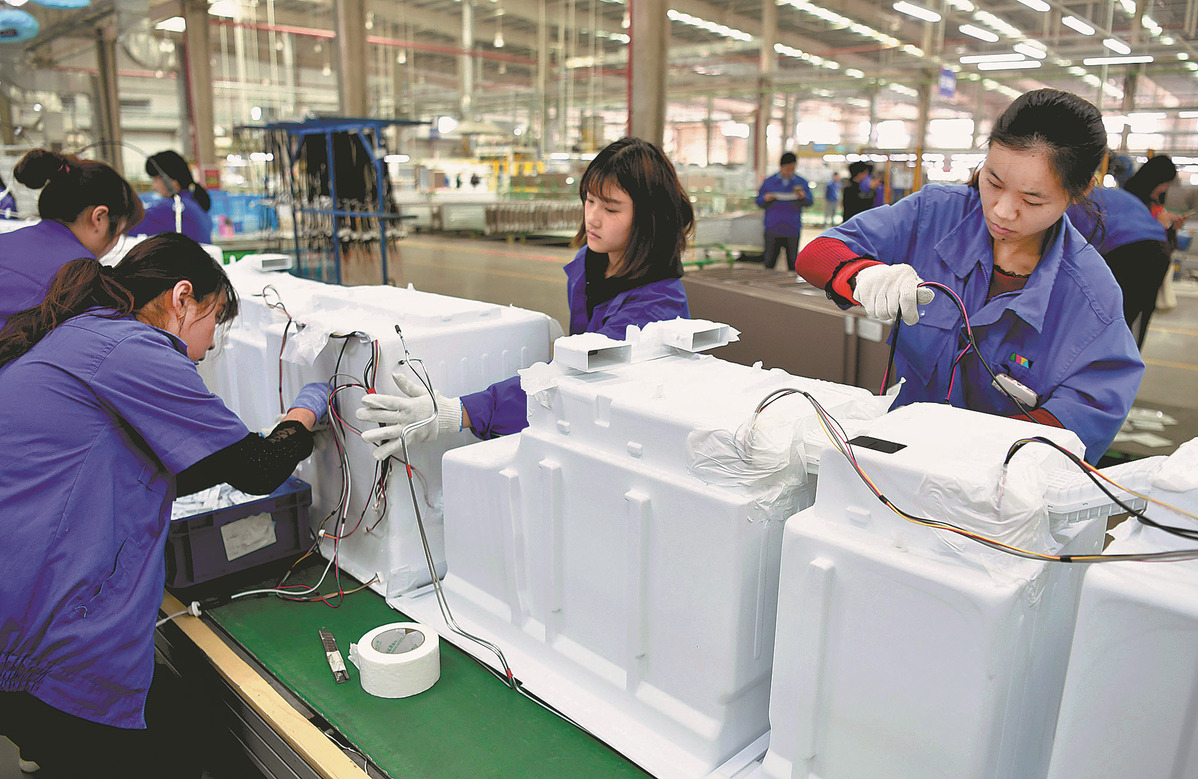Appliance brands grow by producing abroad


Chinese home appliance makers are ratcheting up efforts to expand their presence in overseas markets, increase investment in localized research and development and roll out high-end products amid intensified competition from rivals in the domestic market.
Industry experts said establishing overseas branches or production centers will not only spread China's advanced manufacturing, R&D and management capabilities abroad, but also create job opportunities for locals, boost brand awareness and enhance the competitiveness of Chinese enterprises globally.
Chinese consumer electronics company TCL Technology Group Corp is accelerating steps to strengthen its global operational capabilities and expand its overseas footprint in the semiconductor display and photovoltaic industries.
In recent years, TCL has expanded overseas factories making televisions, modules and photovoltaic cells in Vietnam, Malaysia, Mexico and India. It has established ventures with local partners in Brazil to jointly build production centers, supply chains and an R&D system.
"Looking ahead, we will actively consider increasing industrial centers in Africa and strengthening our business in the Middle East," said Li Dongsheng, founder and chairman of TCL. Li added that building global competitiveness has always been an important strategy for the company.
TCL has set up 43 R&D centers and 32 manufacturing centers around the world, with operations in more than 160 countries and regions. International business has become TCL's biggest growth engine.
Li said China's manufacturing sector should transition from exporting products to exporting industrial capacity given current global economic patterns, thus driving exports of domestic components, materials and equipment.
"We should accelerate the building of global industrial chains, break down trade barriers and build and improve our operations systems in the global market," he said.
The retail sales of China's home appliance sector reached 708.1 billion yuan ($103 billion) in 2022, down 7.4 percent year-on-year, according to Beijing-based market consultancy AVC.
"Expansion into overseas markets will not only relieve the pressure of high inventories in the domestic market, but also increase the international influence of Chinese home appliance companies," said Dong Min, deputy secretary-general of the China Video Industry Association.
Jia Shaoqian, president of Qingdao, Shandong province-based home appliance maker Hisense Group, said revenue from overseas markets is expected to take up more than half of the company's total revenues within three years.
Hisense is accelerating its overseas expansion in high-end laser TVs and ultra light-emitting diode TVs, which reflect great improvements in image quality over earlier technologies. Its laser TVs have been sold in many countries and regions, including the United States, Australia, Germany, France, the United Arab Emirates and South Africa.
Hisense ranked second in global television shipments in 2022, an increase of 16.1 percent year-on-year, according to market research company Omdia.
The company also aims to boost its brand awareness via sponsorship of major sporting events. In recent years, Hisense has been a sponsor of several world-class sporting events, including the UEFA Euro 2016 tournament and the 2022 FIFA World Cup in Qatar.
Seeing demand grow for air conditioners in the Middle East, Chinese home appliance giant Midea Group has been seeking opportunities to localize manufacturing in the region in hopes of offering faster delivery for local consumers.
The company has set up an overseas office in Dubai, the UAE. It has also built a refrigerator, washing machine and water heater factory in Egypt that serves Middle Eastern and African markets.
It will continue to offer low-carbon, energy-saving and intelligent building technologies for the Middle Eastern market, speed up localization efforts and employ more local people in sales, technology services, finance and operations, the company said.
Midea said it has seen booming sales from Spain, France and Russia by means of AliExpress, Alibaba Group's business-to-customer platform, since the start of 2023.
In what appears to be a powerful trend, Chinese home appliance manufacturers are expanding their footprint to overseas markets for new profit growth and long-term development, given that the domestic home appliance market is almost saturated, said Zhao Meimei, assistant president of AVC.
"In the past, most Chinese enterprises adopted the original equipment manufacturer model, but now they are more likely to build up their own brands in a bid to bolster competitiveness on the global stage," said Liang Zhenpeng, an independent consumer electronics analyst.




































